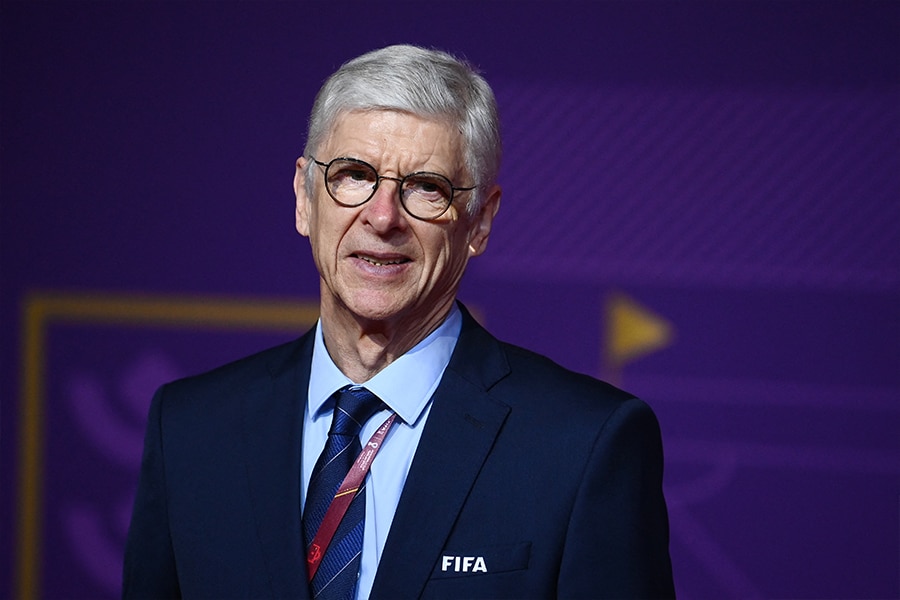
How Arsene Wenger plans to make India a great football nation
The iconic former Arsenal coach was in the country to inaugurate the AIFF-Fifa football academy in Bhubaneswar
 Arsene Wenger, FIFA's Chief of Global Football Development
Image: Franck Fife / AFP
Arsene Wenger, FIFA's Chief of Global Football Development
Image: Franck Fife / AFP
The man who stewarded English club Arsenal to three Premier League (PL) titles and seven FA Cups now has only one target—to make India a great football nation.
On a three-day visit to India to inaugurate the AIFF-Fifa football academy in Bhubaneswar, Arsene Wenger, thrice declared PL’s manager of the season and inducted into English football’s hall of fame in 2006, underlined football education as the key differentiator between those that meet the global benchmarks and those that don’t.
“You take three boys, one born in Mumbai, one in Sao Paulo and the other in Paris. There is no difference between the three after the first day or the first year when it comes to football. It’s after 15 years that the difference between the quality of the players shows up. And that is only down to one reason: Football education,” says Wenger, now the chief of global football development at Fifa. “And that’s what the AIFF-Fifa football academy wants to achieve—wipe out the difference in the quality of education.”
The football academy in Bhubaneswar is coming up in association with the government of Odisha, with Fifa supplying the technical knowhow and coaches. The academy will house a residential facility for around 50 players, who will be trained for two years. Spain’s Sergi Amezcua Fontrodona will relocate to India to implement the project as the head coach of the academy.
Wenger was seated at the Kalinga Stadium in Bhubaneswar on Tuesday, witnessing Asian champions Qatar beating India 3-0 in the World Cup qualifier. “Honestly, I feel the Indian team didn’t perform well and Qatar deserved to win. It reinforced my desire to change things in India. When you think you had the eleven best players out and Qatar was [still] the best team by a good distance, that’s what you want to change,” says Wenger.








